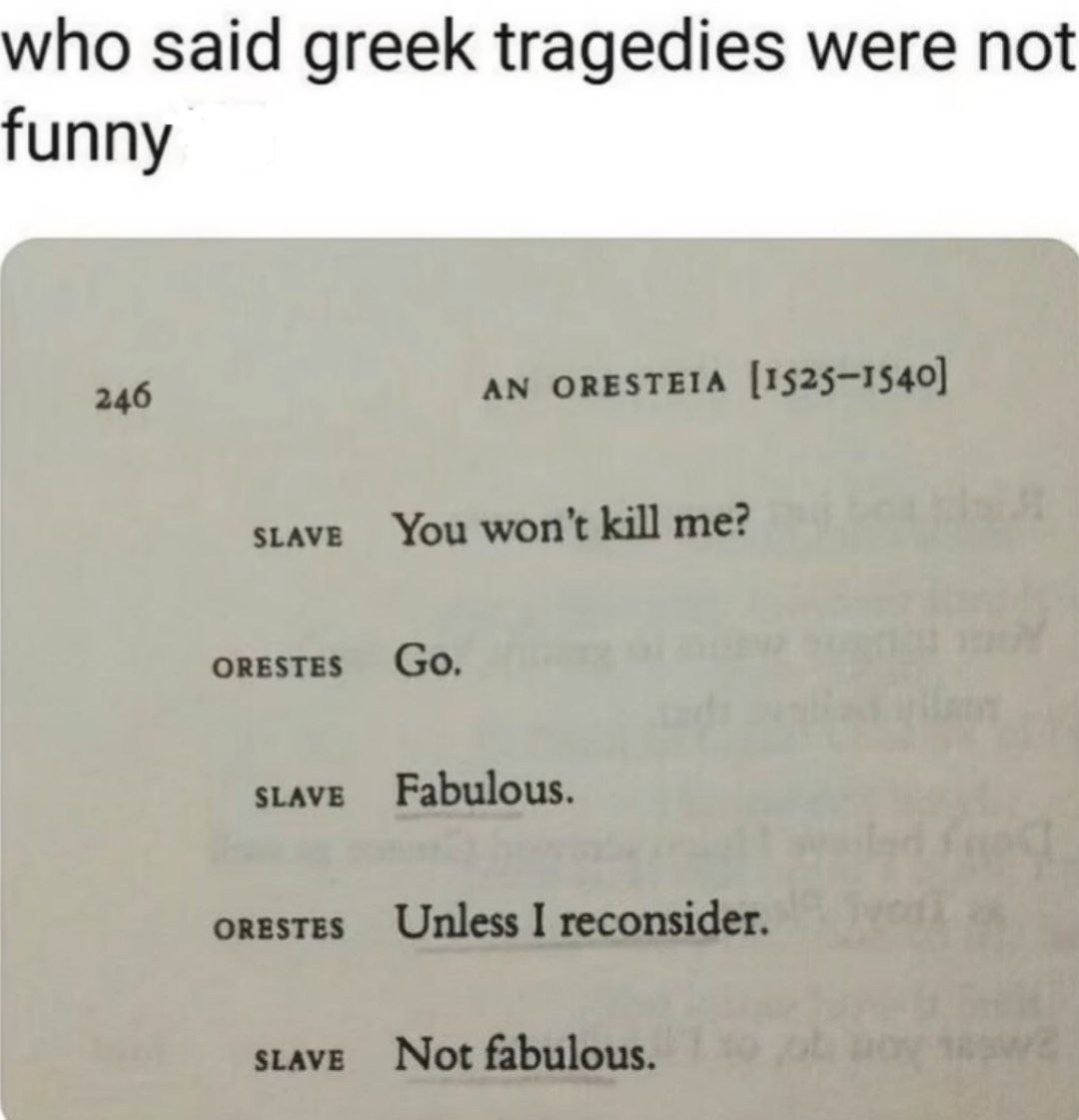this post was submitted on 05 Mar 2025
329 points (100.0% liked)
A Comm for Historymemes
2217 readers
533 users here now
A place to share history memes!
Rules:
-
No sexism, racism, homophobia, transphobia, assorted bigotry, etc.
-
No fascism, atrocity denial, etc.
-
Tag NSFW pics as NSFW.
-
Follow all Lemmy.world rules.
Banner courtesy of @[email protected]
founded 2 years ago
MODERATORS
you are viewing a single comment's thread
view the rest of the comments
view the rest of the comments

Huh, so now I checked and realised that this isn't Aeschylus' Oresteia (and Aeschylus is the oldest preserved and stylistically most traditional of the survivng Greek tragedians, I'm sure he'd never use such brief lines in dialogues), instead it's Euripides' Orestes, and he's definitely closer to this sort of style, relatively more modern.
Φρύξ οὐκ ἄρα κτενεῖς με;
Ὀρέστης ἀφεῖσαι.
Φρύξ καλὸν ἔπος λέγεις τόδε.
Ὀρέστης ἀλλὰ μεταβουλευσόμεσθα.
Φρύξ τοῦτο δ᾽ οὐ καλῶς λέγεις.
Translated by Edward Philip Coleridge:
Phrygian You will not kill me after all?
Orestes You are spared.
Phrygian How well you said that!
Orestes Now it's time to change my plans.
Phrygian You didn't say that well!
This translation is relatively accurate, from what I can tell. Certainly the punchy 'fabulous' is not reflective of the slightly longer statement in the original. The verb ἀφεῖσαι apparently can be translated as 'go', but a dictionary I consulted also provides 'to release, absolve' as one of the other meanings. But the overall effect of the exchange was clearly meant to be humorous, so the translation in OP does succeed in that regard...
The word "ἀφεῖσαι" is close enough to modern Greek that I suspect "you're released" would also be fairly accurate.
Αδμιη, γου κηοω φρεεκ? Αωεςολλε!